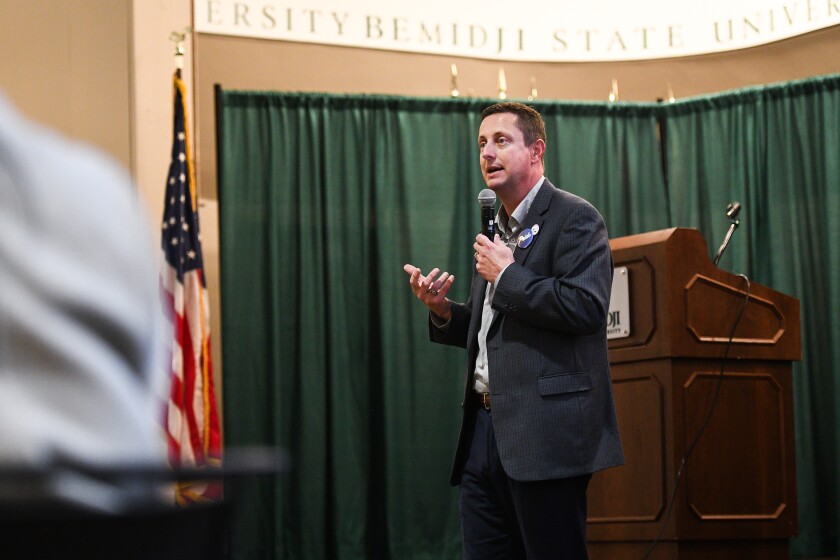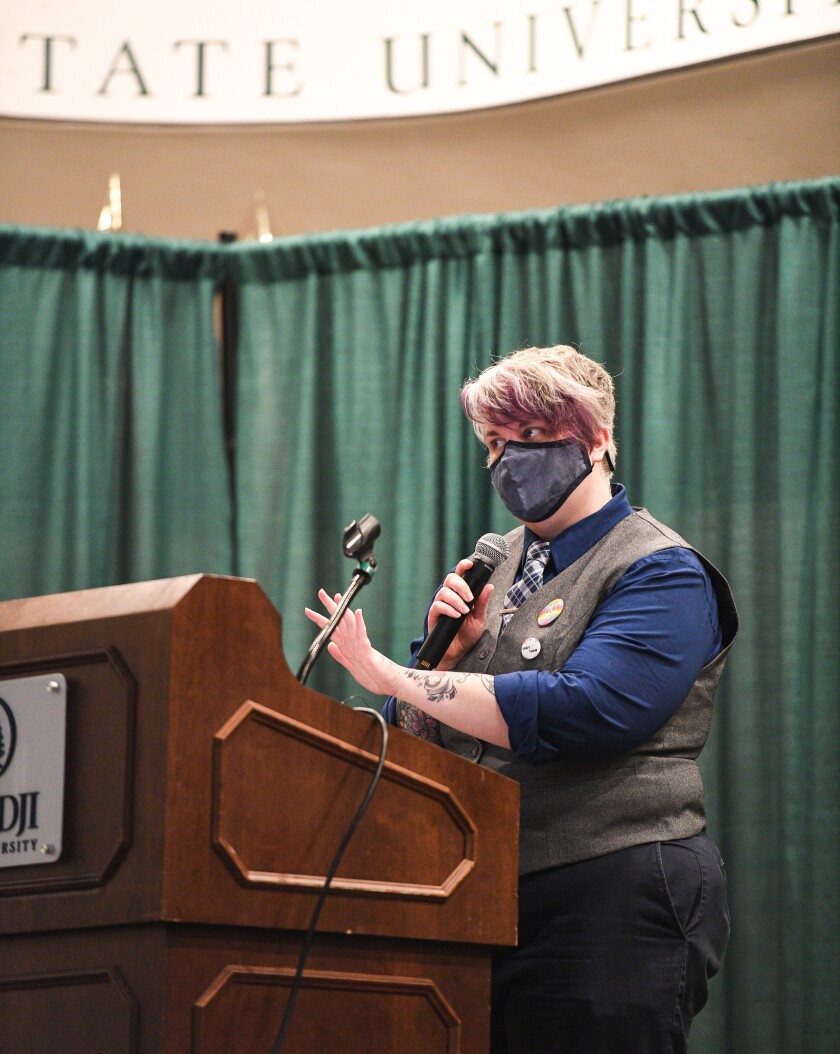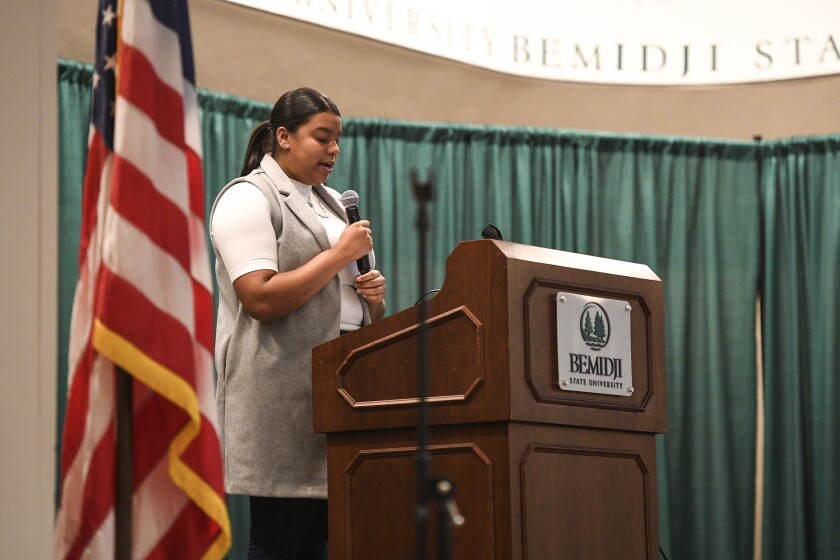BEMIDJI — In his presentation at Bemidji State University, Arnold Dahl-Wooley made it clear that he would choose to be considered sacred over being viewed as a sinner any day.
Dahl-Wooley, a Two Spirit member of the Leech Lake Band of Ojibwe, shared the history of the identity, its connection to Native American culture and the importance of supporting LGBTQ+ youth at the first of a series of BSU President’s Receptions on Thursday evening.
ADVERTISEMENT
“This evening we amplify the experiences and the voices of the folks who are oftentimes not at the table,” opened Henoc Preciado, BSU’s interim head of staff. “It’s an evening to be, to be in community and to learn together.”
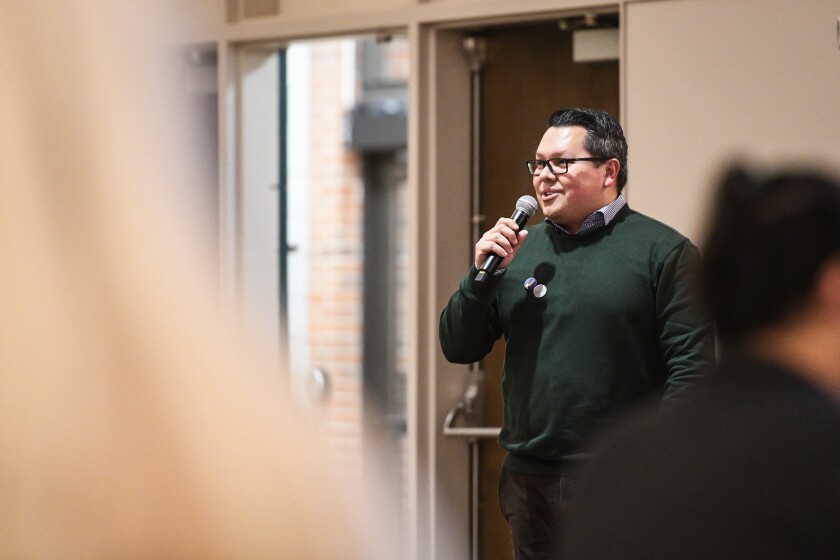
The topic of the reception was Two Spirit identity and its connection to Indigenous cultures throughout North America. Dahl-Wooley began by introducing the phrase and what it means.
“(Someone who is Two Spirit) is a Native American or First Nations individual who identifies with multiple genders,” he explained. “This is not the same as being gay.”
The phrase Two Spirit serves as an umbrella term for a wide variety of unique identities and social roles found across Native American cultures. Adopted at an international conference in the early 1990s, the term is also used by many LGBTQ+ Native Americans as a part of their identities.
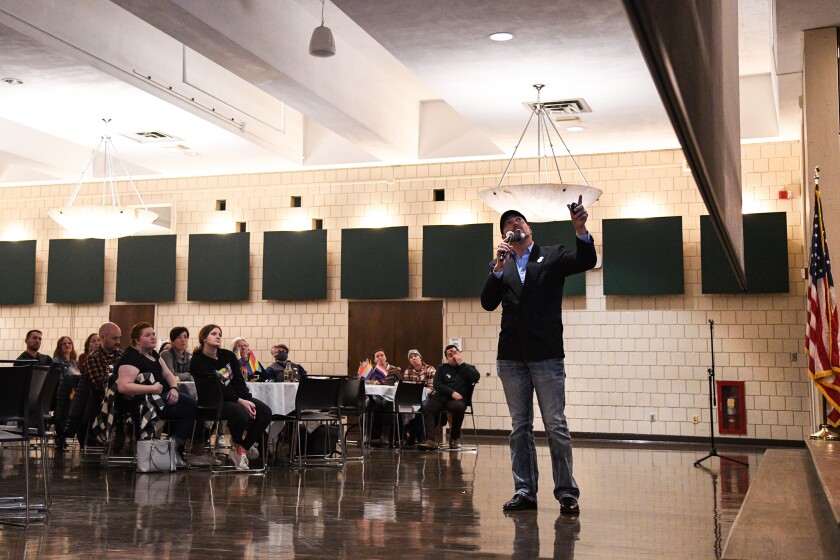
Historically Two Spirited people were male, female or intersex individuals who combined gender roles in their societies and who held a special place in their cultures, oftentimes highly respected or regarded as blessed or sacred.
However, Dahl-Wooley explained that with the advent of colonization and the ensuing erasure of Indigenous people and cultures, Two Spirit became a term associated with the concept of sin and the identity was demonized.
“(During colonization) we’re learning words like ‘sinner’ (and) ‘abomination’ and we’re learning different values, different belief systems,” he added. “Where did that leave the Two Spirit? Hiding.”
ADVERTISEMENT
With the imposition of predominantly Christian, European values, Dahl-Wooley shared that being Two Spirit became something children were taught to be ashamed of or to shun.
Native American youth who recognized that they were different from others because of their gender identity or attraction hid that part of themselves to avoid bullying and violence.
Dahl-Wooley spoke of his own experience, and how he changed how he presented himself for years to survive his time at school.
“I changed the way I walked, changed the way I talked, the way I sat. It’s exhausting to pretend to be somebody else for 24 hours a day, every day,” he said.
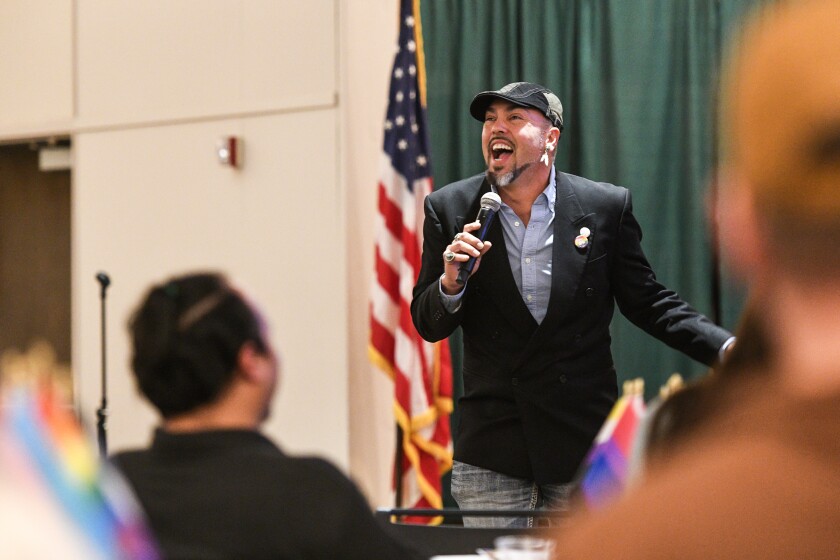
Dahl-Wooley also shared the substantial impact these societal attitudes have on LGBTQ+ youths’ mental health, citing their significantly higher rates of depression and anxiety, as well as the increased likelihood that they attempt suicide.
LGBTQ+ youth attempt suicide at more than four times the rate of their non-LGBTQ+ peers. Native American and Alaskan Native LGBTQ+ youth face additional challenges, and are 2.5 times more likely to report having attempted suicide in the past year than non-Native American/Alaskan Native LGBTQ+ youth, according to
“It’s important to make sure we have inclusion. It’s about suicide prevention, it’s about anti-bullying,” Dahl-Wooley said. “It’s to prevent communities fighting against each other thinking we’re all so different when we’re not.”
ADVERTISEMENT
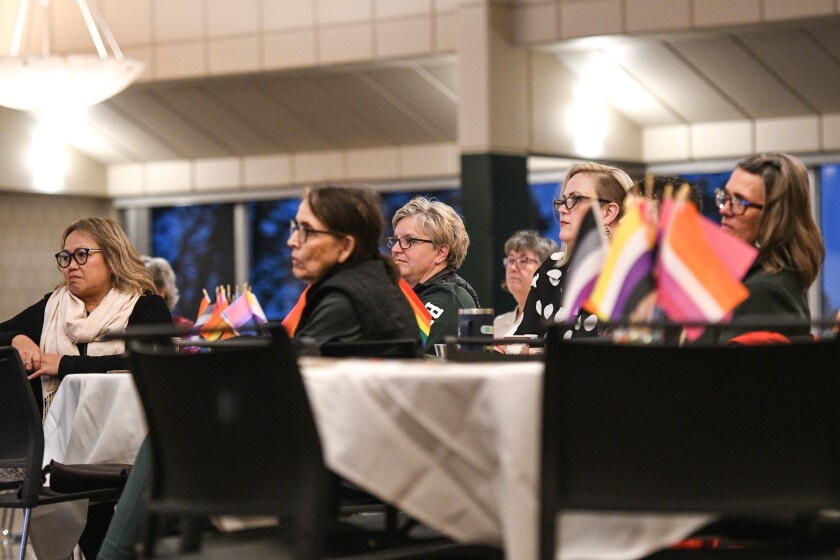
Sharing Two Spirit history and spreading awareness about these issues are ways Dahl-Wooley works to advocate for his community. He shared that his goal is for every LGBTQ+ youth to have a safe home, a safe school and a safe community.
He also hopes that it will help Native American communities reconnect with their history and provide Indigenous LGBTQ+ youth a way to feel at home in their identities and their culture.
“We lost a lot of things over the years because something else was being forced (onto us),” he said. “We’re remembering our history.”
For Dahl-Wooley’s own journey into acceptance and his current role as an LGBTQ+ and Two Spirit advocate, he explained that the choice between being viewed as a sinner and being viewed as sacred is an easy one.
“I could either be the sinner or I could be sacred," he left off. "I choose sacred every time."
If you or someone you know is experiencing a mental health crisis or needs support, the Trevor Project provides a 24/7 crisis intervention and suicide prevention lifeline for LGBTQ+ youth at (866) 488-7386 or text “START” to 678678.
